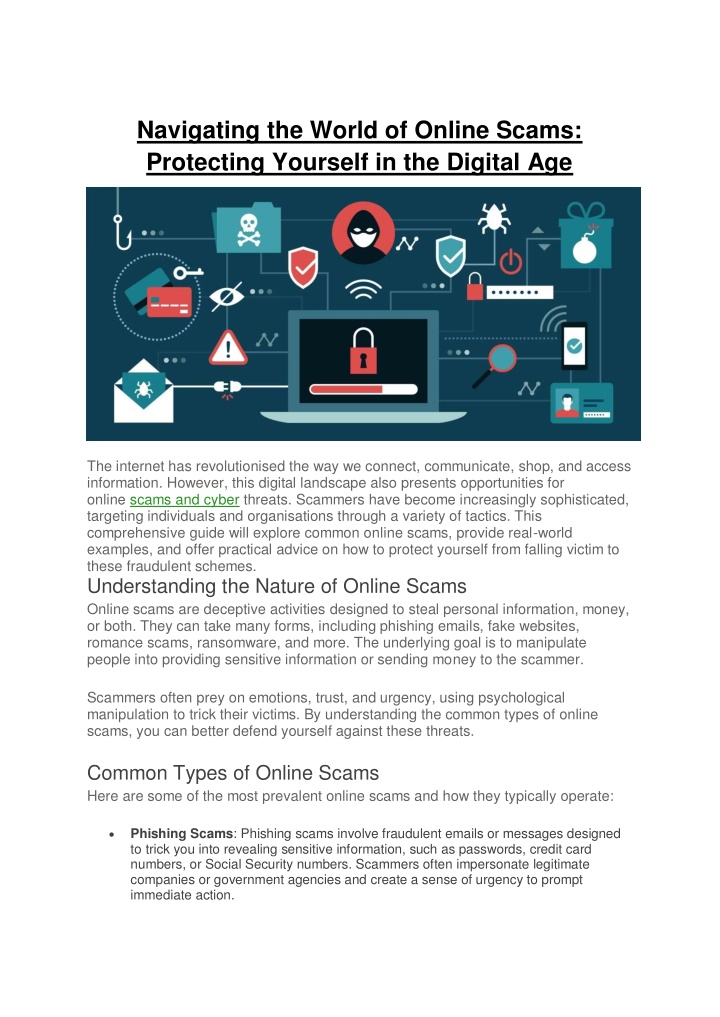
Navigating the World of Online Scams | best engineering colleges in bangalore
The internet has revolutionised the way we connect, communicate, shop, and access information. However, this digital landscape also presents opportunities for online scams
Download Presentation

Please find below an Image/Link to download the presentation.
The content on the website is provided AS IS for your information and personal use only. It may not be sold, licensed, or shared on other websites without obtaining consent from the author. If you encounter any issues during the download, it is possible that the publisher has removed the file from their server.
You are allowed to download the files provided on this website for personal or commercial use, subject to the condition that they are used lawfully. All files are the property of their respective owners.
The content on the website is provided AS IS for your information and personal use only. It may not be sold, licensed, or shared on other websites without obtaining consent from the author.
E N D
Presentation Transcript
Navigating the World of Online Scams: Protecting Yourself in the Digital Age The internet has revolutionised the way we connect, communicate, shop, and access information. However, this digital landscape also presents opportunities for online scams and cyber threats. Scammers have become increasingly sophisticated, targeting individuals and organisations through a variety of tactics. This comprehensive guide will explore common online scams, provide real-world examples, and offer practical advice on how to protect yourself from falling victim to these fraudulent schemes. Understanding the Nature of Online Scams Online scams are deceptive activities designed to steal personal information, money, or both. They can take many forms, including phishing emails, fake websites, romance scams, ransomware, and more. The underlying goal is to manipulate people into providing sensitive information or sending money to the scammer. Scammers often prey on emotions, trust, and urgency, using psychological manipulation to trick their victims. By understanding the common types of online scams, you can better defend yourself against these threats. Common Types of Online Scams Here are some of the most prevalent online scams and how they typically operate: Phishing Scams: Phishing scams involve fraudulent emails or messages designed to trick you into revealing sensitive information, such as passwords, credit card numbers, or Social Security numbers. Scammers often impersonate legitimate companies or government agencies and create a sense of urgency to prompt immediate action.
Fake Websites: Scammers create fake websites that mimic legitimate ones, such as online shopping platforms, banks, or government websites. These sites often look convincing, leading users to enter their personal information or make purchases on what they believe is a legitimate site. Romance Scams: Romance scams target individuals seeking relationships or companionship online. Scammers build a rapport with their victims, often over weeks or months, and then fabricate a story that requires financial assistance. This could involve medical emergencies, travel expenses, or other pressing needs. Tech Support Scams: Tech support scams involve fake messages or calls claiming that your computer has a virus or technical issue. Scammers pose as tech support representatives and attempt to gain remote access to your computer or collect payment for non-existent services. Ransomware: Ransomware is a type of malware that encrypts your files and demands a ransom for their release. Scammers often use phishing emails or compromised websites to spread ransomware, putting personal data and business operations at risk. Social Media Scams: Scammers use social media platforms to create fake profiles and engage with users. They may promote fake products, initiate romance scams, or run contests designed to collect personal information. Real-World Examples Let s take a look at a few real-world examples of online scams to better understand how they work: The Bank Account Update Phishing Scam You receive an email claiming to be from your bank, asking you to update your account information due to a security breach. The email includes a link to a fake website that looks identical to your bank s official site. If you enter your information, it goes straight to the scammer. The Emergency Romance Scam You meet someone on an online dating platform, and they seem charming and attentive. After building a relationship, they tell you they need money for an emergency medical procedure or to travel to meet you. They pressure you to send funds through a money transfer service. The TechSupport Scam Call You receive a call from someone claiming to be from Microsoft, warning you of a virus on your computer. They ask for remote access to your system to fix the issue, but instead, they install malware or demand payment for unnecessary services. How to Protect Yourself from Online Scams Now that you re aware of common online scams, let s explore some practical steps to shield yourself from these threats: Stay Informed and Educated: Knowledge is your best defence against online scams. Stay informed about the latest scams and tactics used by cybercriminals. Ensure that you rely on a credible source for cybersecurity news.
Verify the Source: If you receive an email, message, or phone call requesting personal information, verify the source before taking any action. Contact the organisation or person through official channels to confirm the legitimacy of the request. Be Sceptical of Urgency: Scammers often create a sense of urgency to pressure you into making quick decisions. Legitimate organisations rarely use high-pressure tactics so evaluate the situation carefully. Use Strong Passwords and Two-Factor Authentication: Protect your online accounts with strong passwords that include a mix of letters, numbers, and symbols. Enable 2FA (two-factor authentication) to add an extra layer of security. Check for Secure Connections: When entering sensitive information online, ensure that the website uses a secure connection (HTTPS). Always check for a padlock icon present in the browser s address bar. Avoid Sharing Personal Information: Be cautious about sharing personal information online, especially on social media platforms. Limit the details you share and adjust your privacy settings to restrict who can view your posts. Use Reliable Security Software: Install reputable antivirus and anti-malware software on your devices. Keep the software updated to protect against the latest threats. Be Wary of Freebies and Contests: Scammers often use the promise of freebies, contests, or giveaways to collect personal information. Be sceptical of offers that seem too good to be true, and research the legitimacy of such promotions. Report Suspected Scams: If you encounter a suspected scam, report it to the relevant authorities or platforms. It will allow you to prevent others from falling into the same trap. Educate Others: Share your knowledge of online scams with friends, family, and colleagues. The more people are aware of these threats, the less effective they will be for scammers . Computer Science Engineers Architects of Cybersecurity Computer science engineers specialising in cybersecurity possess the technical expertise and problem-solving skills required to design, implement, and maintain secure systems. Their work encompasses a wide range of activities, from creating
secure software to developing intrusion detection systems. Heres a breakdown of the key roles they play in combating online scams: Building Secure Software One of the fundamental tasks for cybersecurity engineers is to develop software that is resistant to exploitation. This involves incorporating security best practices during the software development lifecycle, conducting rigorous testing, and ensuring that applications are protected against common vulnerabilities like SQL injection, cross- site scripting, and buffer overflows. Implementing Network Security Cybersecurity engineers design and implement secure network architectures that protect against unauthorised access and data breaches. They deploy firewalls, intrusion detection and prevention systems (IDPS), virtual private networks (VPNs), and other security measures to safeguard networked systems. Developing and Maintaining Security Policies These engineers work with organisations to create comprehensive security policies that govern how sensitive data is accessed, stored, and transmitted. By defining clear security protocols, they help organisations minimise the risk of internal and external threats. Monitoring and Incident Response Continuous monitoring is essential for identifying and responding to security threats in real-time. Cybersecurity engineers set up systems to detect suspicious activity and analyse potential threats. They are also responsible for coordinating incident response, which involves isolating threats, mitigating damage, and restoring normal operations. Conducting Security Audits and Penetration Testing To ensure that systems remain secure over time, cybersecurity engineers conduct regular security audits and penetration tests. These activities help identify vulnerabilities and test the effectiveness of existing security measures. Educating and Raising Awareness Cybersecurity engineers often take on an educational role, training employees and individuals on best practices for online security. This includes awareness programs on phishing, social engineering, password security, and other common threats. To Sum Up In a world where online scams and cyber threats are becoming increasingly sophisticated, the role of computer science engineers in cybersecurity is more important than ever. These professionals are at the forefront of developing and implementing solutions to protect against online scams, ensuring that individuals and organisations can navigate the digital landscape safely. As the demand for cybersecurity expertise continues to grow, so does the need for skilled engineers who can innovate and adapt to evolving threats.
For individuals interested in a career in cybersecurity, the opportunities are vast and the impact is significant. By pursuing a career in this field, you can contribute to the safety and security of the digital world, helping to protect people and businesses from the risks of online scams. Visit us at ACSCE if you think cyber security is your calling. Discover a range of subjects, such as how to set up a safe computer system and network, the value of using monitoring tools, network security solution design techniques, intrusion detection, and information security risk management framework.

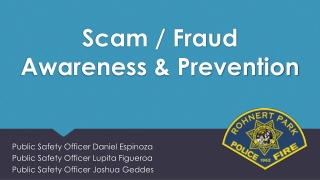





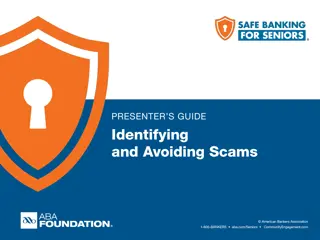



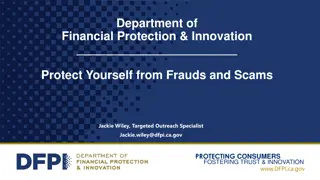
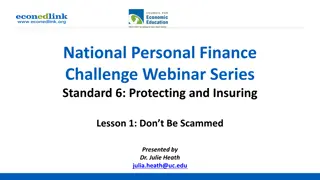


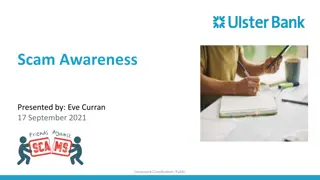


![101 Reviews How to Recover Lost Bitcoin [Scammed/Stolen Funds]](/thumb/153354/101-reviews-how-to-recover-lost-bitcoin-scammed-stolen-funds.jpg)



